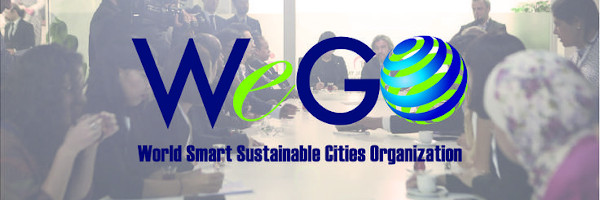World Smart Sustainable Cities Organization WeGO
| World Smart Sustainable Cities Organization WeGO | |
|---|---|

| |
 World Smart Sustainable Cities Organization | |
| Team Organizations | Hancom Korea Smart Card SRPOST |
| Team Leaders | Albert Graves Program Director |
| Participating Municipalities | Seoul South Korea |
| Status | Launched |
| Document | None |
Description
The World Smart Sustainable Cities Organization (WeGO), established by 50 founding member cities in 2010, is an international association of city and other local governments, smart tech solution providers, and national and regional institutions committed to the transformation of cities into smart sustainable cities. A diverse range of activities include capacity building programs, sessions and smart city conferences and study visits, feasibility studies and pilot projects, expos and exhibitions, smart city guidelines and best practice catalogs.
Challenges
- Lack of vision and forward planning
- Lack of awareness of existing solutions
- Concerns about digital resilience
- Weak regulatory framework
- Funding issues
- Fragmented or one-off projects
- Siloed departments
- No data-driven mindset
- Low digital skills
- Lack of international cooperation, etc
Solutions
WeGO aims to provide an effective knowledge-sharing platform to help cities and communities from around the world to better cope with their urban challenges together.
Major Requirements
WeGO’s activity is primarily focused on assisting its members in:
- Strengthening capacity building
- Expanding knowledge of the existing and emerging technologies as well as successful city cases
- Identifying possible partners represented by with like-minded cities and institutions and private companies
- Implementing joint smart city projects
Performance Targets
| Key Performance Indicators (KPIs) | Measurement Methods |
|---|---|
|
Every year, WeGO sets the performance targets such as:
|
|
Standards, Replicability, Scalability, and Sustainability
WeGO programs ultimately pursue successful implementation of smart city projects in member cities. For example, the WeGO Feasibility Study Program aims at replicating existing solutions, well proven to be smart and sustainable, in member cities in the form of pilot projects. Pilot projects then serve as proof of evidence for further scaling of the project.
Cybersecurity and Privacy
Acknowledging that cybersecurity and privacy are high priorities for cities and communities, WeGO includes these aspects of smart city in the curriculums and agenda of its meetings and training programs. When working with consultants for project implementation, WeGO also ensures cybersecurity and privacy requirements are met.
Impacts
- Strengthened capacity building of city officials in member cities
- Increased awareness by city officials in member cities of the existing and emerging technologies
- Joint smart city projects through matchmaking activities
- Enhanced international cooperation, especially G2G or G2B
Demonstration/Deployment
WeGO will share the major achievements of the organization for the strategic term of 2017-2020 and the best practices by its members, its ongoing programs that include partnerships with cities in ASCN and North-East Asia, as well as its ambitious plans to achieve smart and sustainable urban development in the term of 2020-2023 (to be adopted at the upcoming General Assembly 2020).
"Human Factors" is not in the list (Buildings, Cybersecurity and Privacy, Data, Education, Public Safety, Rural, Smart Region, Transportation, Utility, Wellbeing, ...) of allowed values for the "Has sector" property.